The 1990s were an iconic decade for BMW, producing some of the most beloved models in automotive history. However, time takes its toll, and even these legendary machines need restoration. In this blog, we walk through the process of bringing a neglected BMW back to its former glory—step by step, as shown in the photos.
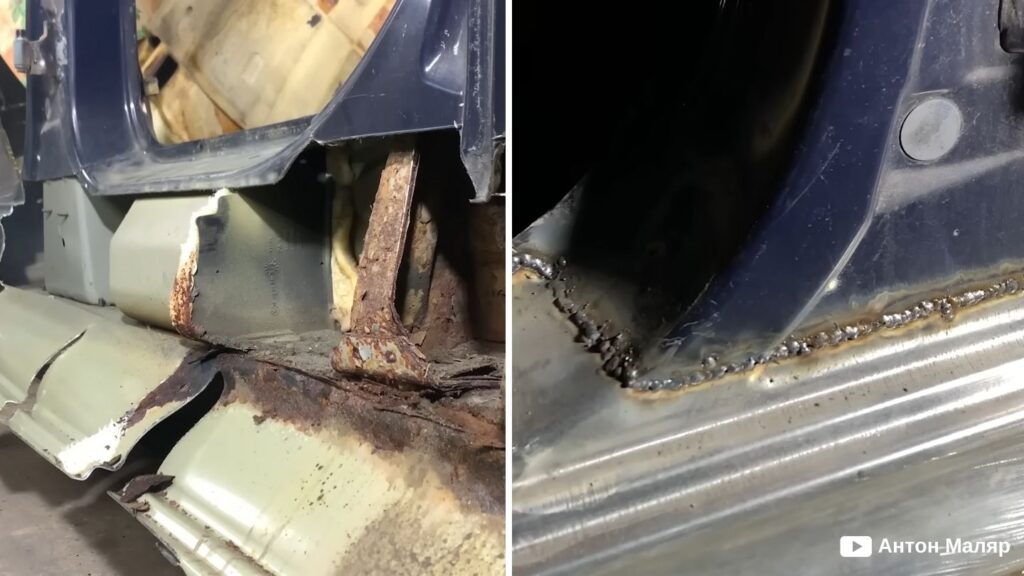
Starting Condition: A Neglected Beauty
The restoration began with a BMW in a rough state. The exterior had faded paint, missing trim pieces, and signs of long-term exposure to the elements. The interior was no better, with a worn-out dashboard, faded leather, and dust covering everything. The challenge was clear: this BMW needed a complete transformation.
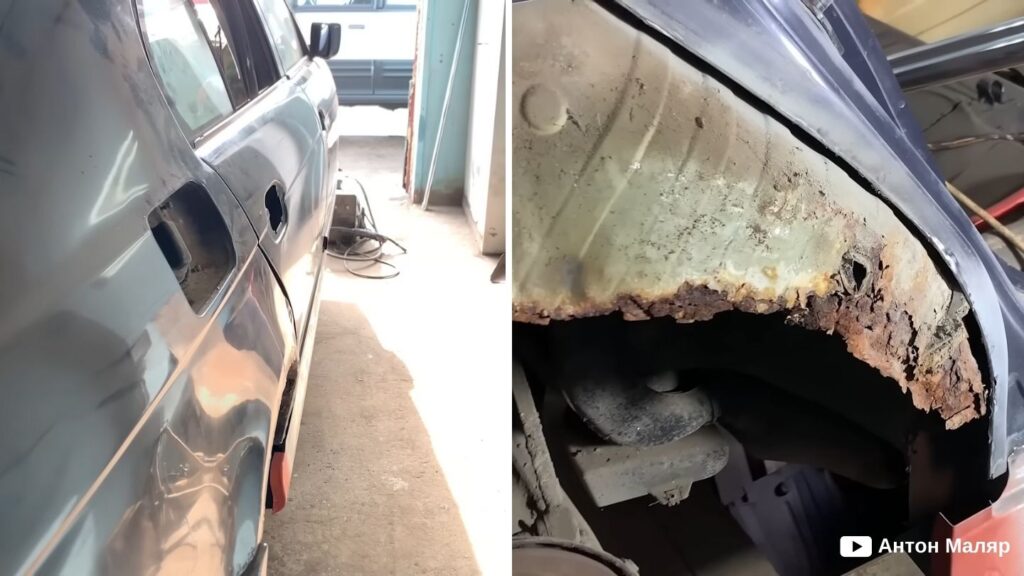
Assessing the Damage and Preparing for Repairs
Once the car was brought into the workshop, a detailed inspection revealed extensive rust damage, especially on the lower panels and wheel arches. The frame had corrosion, and multiple body panels required replacement. The first step was stripping down the affected areas to determine the full extent of the necessary repairs.
Metal Work and Structural Restoration
With rust being the biggest issue, the affected sections were cut out, and fresh metal panels were welded in place. Precision was crucial to ensure proper alignment and fitment. The wheel arches were particularly challenging, requiring custom adjustments to restore their original shape. This phase ensured that the BMW would have a solid foundation for the next steps.
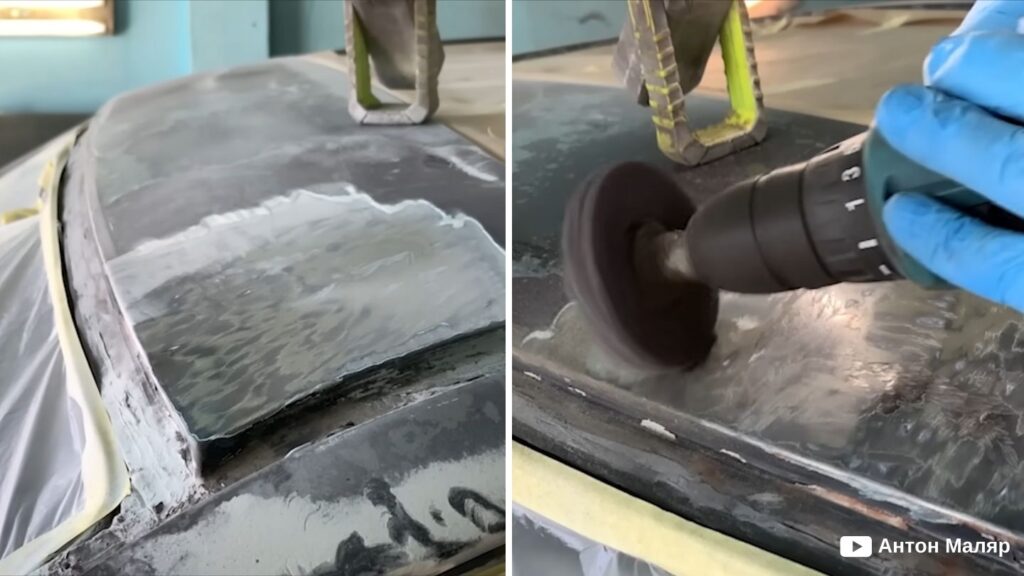
Bodywork and Surface Preparation
After the structural repairs, the focus shifted to preparing the car for painting. The surface was carefully sanded down to remove imperfections. The headlights, trim pieces, and windows were masked off, leaving only the body panels exposed for the new coat of paint.
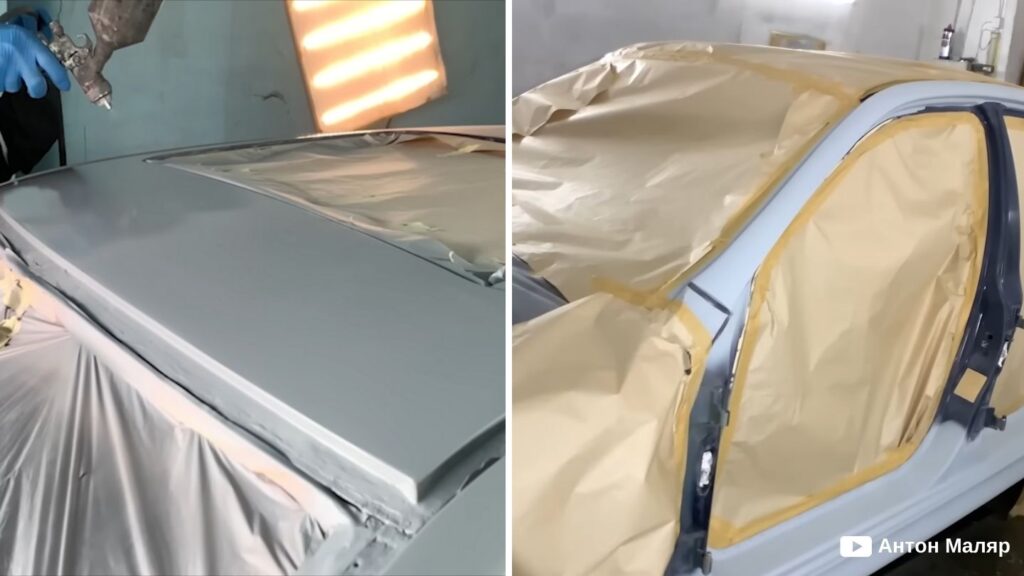
Restoring the Finer Details
Before applying paint, finer restoration work was carried out. The headlights, which had become foggy over time, were polished using sandpaper and water to restore their clarity. This small but crucial step significantly improved the car’s overall aesthetics.
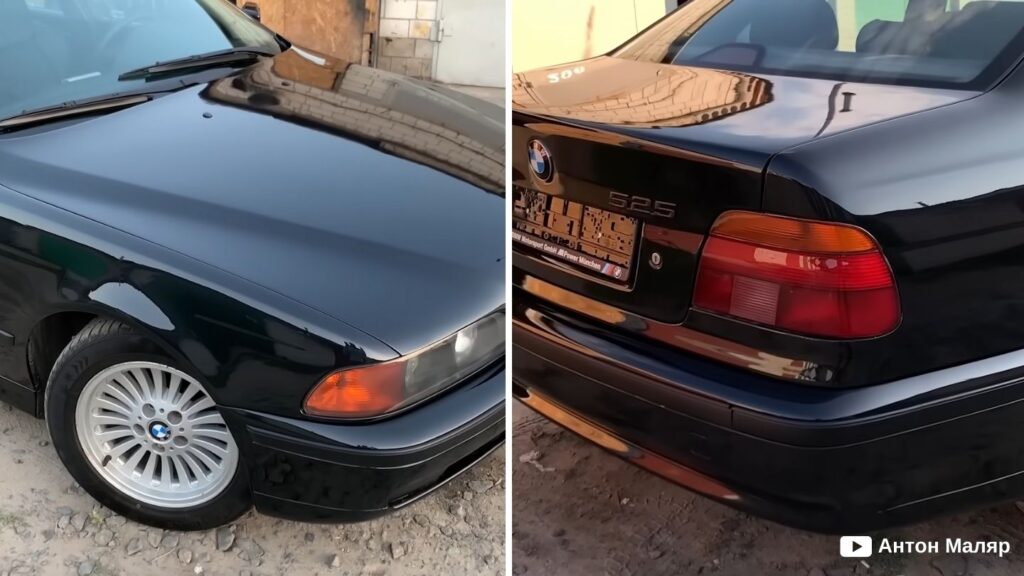
Fresh Paint: Bringing the BMW Back to Life
With the bodywork completed, the BMW was primed and painted in a sleek black finish. A high-gloss clear coat was applied to give it a deep shine, reminiscent of its factory-fresh look. The difference was striking—the car was already looking brand new.
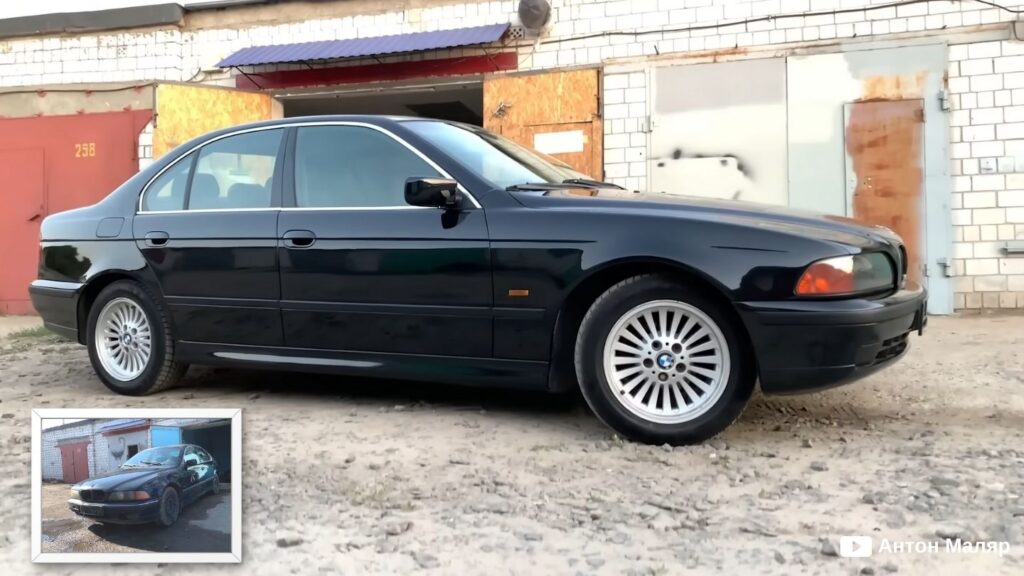
Final Assembly and Finishing Touches
Once the paint was fully cured, the car was reassembled piece by piece. New trim pieces, freshly polished wheels, and a detailed interior cleaning transformed the once-forgotten BMW into a head-turning classic. The result was nothing short of stunning.
Does BMW Restore Old Cars?
BMW does have programs to restore classic models, especially through BMW Classic, which specializes in maintaining and refurbishing vintage models. However, private restorations like this one show that with dedication, skill, and passion, anyone can bring a 90s BMW back to life.
What Was the Best BMW in the 90s?
The 1990s gave us legendary BMWs like the E39 5 Series, E36 3 Series, and the E34 M5. Each model had its charm, but the E39 is often considered one of the best all-around BMWs of the decade, offering a perfect balance of luxury, performance, and timeless design.
Watch the Full Restoration Video
For a full breakdown of this restoration, check out the video here: Watch on YouTube.
This restoration proves that with time and effort, even the most worn-down BMW can be revived into a stunning classic. Whether you’re considering a project car or simply appreciate automotive craftsmanship, the 90s BMW remains an iconic choice.

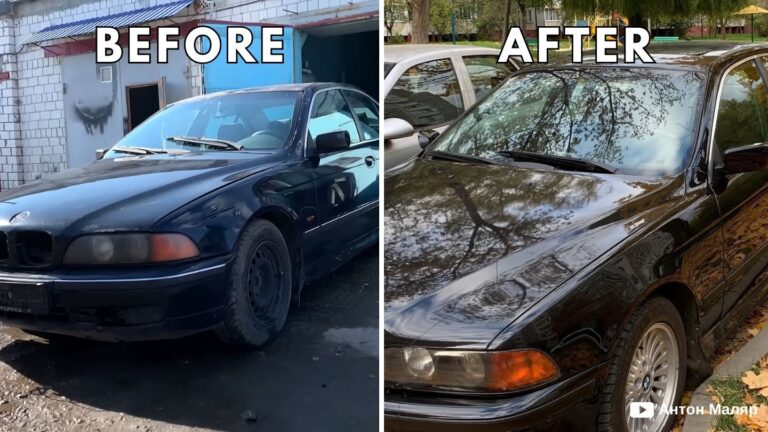
0 Comments